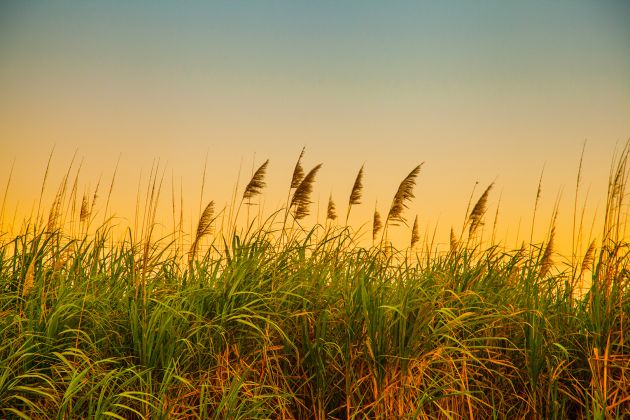
Written By
Stephanie Schierhuber
College
College of Arts, Society and Education
Publish Date
30 October 2020
Related Study Areas
A missing modern perspective
The sight of tassel-topped cane fields and the scent of molasses sweetening the breeze are integral to the story of North Queensland agriculture. But the timelessness of these sights and scents are contrasted with sugar industry narratives that are stuck firmly in the past. JCU creative writing PhD student Elizabeth Smyth is rewriting the narrative to bring sugar industry stories into the 21st century.
“Australian stories set in the country are often about someone escaping the pressures of city life to relax and find new meanings in their life,” Elizabeth says. “This perspective has a long literary tradition. An alternative is to consider a farmer’s perspective. Farmers are not relaxing in rural places, they’re working hard to benefit both themselves and the community.”
“North-east Queensland is an important place to set farm novels for a range of reasons. Firstly, the north is out of sight, out of mind, not well understood by most Australian people. Secondly, it has an amazing level of biodiversity, especially in the wet tropics. Thirdly, the extreme weather events of floods, cyclones and heat adds drama to any story, it makes farmers resilient and inventive.”
When the Australian sugar industry makes its appearance in Australian literature, it is with striking consistency, says Elizabeth. “Every novel that is set on an Australian sugarcane farm is historical. If you want to read fiction to get some insight into the sugar industry you’ll learn about cutting cane by hand and the use of indentured labor. But you won’t learn anything about growing sugarcane as it’s done now.”
21st century sugar stories
For Elizabeth, telling a contemporary cane farm story means exploring the complex contradictions that make up agricultural life. One such contradiction is how farmers interact with nature and the environment in the course of their work.
“On the one hand,” Elizabeth says, “farmers exploit nature because they’re growing things for people to use. But on the other hand, they’re not in it for the short term. They’re mostly in it, family farmers in particular, for generations. So they want to look after the land and keep it fertile. They’re using this land to meet human needs, but they also want the farm to stay fertile for the long term.”
Advances to farm machines and technology also presents a contradiction in farming. “There’s a lot of machines and technology on farms today. The harvesters, the tractors, the GPS technologies, the irrigation equipment, you name it. And so I’m interested in how technologies are used, but also how these things influence and form the farmers.”
“Machinery, for example, is a two-edged sword. It raises people from having to do monotonous manual labor, so away from things like hand cutting cane. It can be seen as good from that perspective. But machines can have negative impacts too, for example, compaction of the soil or the use of fossil fuels.”
For Elizabeth, one of the most important things to achieve through her research is a deep exploration of these contradictions. “I can see the rewards and challenges, the good and bad, safety and risks on farms and I want to show that.”



Telling our own tales
As important as the issue of which stories get told, is who gets to do the telling. It is essential that the people of North Queensland get to tell their own stories, says Elizabeth. “How the stories of North Queensland are told, in some way depends on how people in urban centres think about us. I don’t think we need to rely on that. I think we need to carve out our own place because there’s a lot more meaning and importance here than people in Sydney and Melbourne might realise.”
Ultimately, Elizabeth hopes that her work starts conversations. “The story I write has to be compelling and dramatic. I want to give people new insights into farm life that they can’t help talking about. I want people to think deeply about how land is used in Australia. Should we use fertile land for farming? If we don’t, what is better? Is it better to build houses there? Is it better to conserve it for non-human nature? Or should we return it to traditional owners? These are complex issues. But whatever your view, the worst thing we can do is to not talk about it.”

Featured researcher
Elizabeth Smyth
Elizabeth Smyth is a writer, librarian, and PhD candidate at JCU. Her research centres on the conflict between nurturing and exploiting the farm environment. Elizabeth aims to develop new insights into farming and farm life through creative-practice research. By writing a contemporary novel, Elizabeth aims to give urban readers a dramatic experience of the idyllic and non-idyllic aspects of farm life in the Australian sugar industry.
Elizabeth’s writing has been published in Meanjin, shortlisted for the Varuna Publisher Introduction Program, and long-listed in the Australian Book Review’s prestigious Elizabeth Jolley Short Story Prize. Elizabeth has been awarded a Varuna Residential Fellowship, Queensland Writers Centre Maher Fellowship, and numerous Regional Arts Development Fund grants.